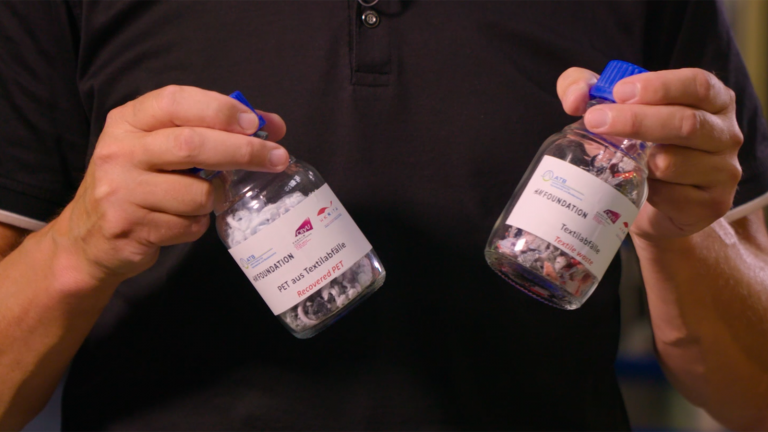
Intelligent reutilisation of waste
The Leibniz Institute for Agricultural Engineering and Bioeconomy (ATB) in Potsdam specialises in the recovery of high-quality raw materials from organic residual materials. Joachim Venus conducts research on innovative processes and he follows his guiding principle of an integrated closed-loop economy.
Integrating a closed-loop economy into everyday life
Numerous complicated steps are necessary to recover high-quality raw materials from a black sludge in a garbage bin. Joachim Venus from the Leibniz Institute for Agricultural Engineering and Bioeconomy (ATB) is a specialist in this exact process.
The material recycling of biomass is a key challenge in terms of resource efficiency and a closed-loop economy. At the Leibniz Institute for Agricultural Engineering and Bioeconomy, starting products for new substances are created from a black sludge in which valuable raw materials, such as lactic acid and cellulose, are hiding.
“This is incredibly cumbersome; it costs money, it is time-consuming and it also poses a lot of challenges because there are some substances in the sludge that we have never encountered in the framework of other projects before,” says Joachim Venus. He prefers the sludge from the organic waste bin to the sludge from the residual waste bin because there are predominantly organic substances in the organic waste bin “if people separate the waste diligently”.
However, nothing seems to be impossible at the ATB. In the framework of a project carried out in cooperation with the University of Hong Kong, the researchers succeeded in extracting cotton fibres and plastic fibres from the mixed fabrics of old clothes and in forwarding these materials so that they can be reutilised. “This is also a wonderful example of an integrated closed-loop economy and of reusing otherwise unutilised waste,” says Venus.
He thinks that – apart from the international cooperation work – his institute’s location in Brandenburg has another great advantage, namely that there seems to be an apparently inexhaustible supply of residual materials – especially from the metropolis Berlin. Brandenburg supplies Berlin mainly with agricultural products and energy; what it gets back are residual materials for which special utilisation processes have to be developed: “This means that Brandenburg already plays a very prominent role.”